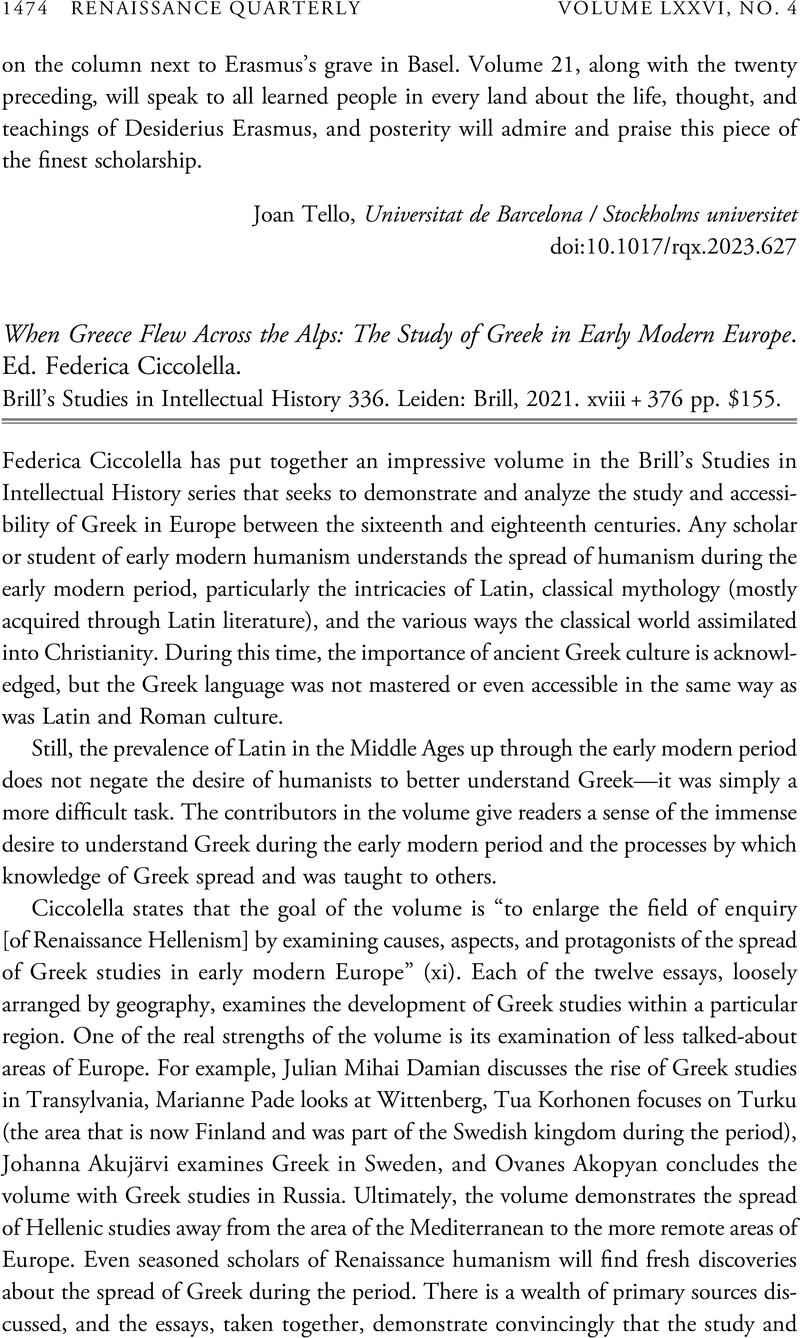No CrossRef data available.
Article contents
When Greece Flew Across the Alps: The Study of Greek in Early Modern Europe. Ed. Federica Ciccolella. Brill's Studies in Intellectual History 336. Leiden: Brill, 2021. xviii + 376 pp. $155.
Review products
When Greece Flew Across the Alps: The Study of Greek in Early Modern Europe. Ed. Federica Ciccolella. Brill's Studies in Intellectual History 336. Leiden: Brill, 2021. xviii + 376 pp. $155.
Published online by Cambridge University Press: 24 January 2024
Abstract
An abstract is not available for this content so a preview has been provided. Please use the Get access link above for information on how to access this content.

Information
- Type
- Review
- Information
- Copyright
- Copyright © The Author(s), 2024. Published by Cambridge University Press on behalf of the Renaissance Society of America


